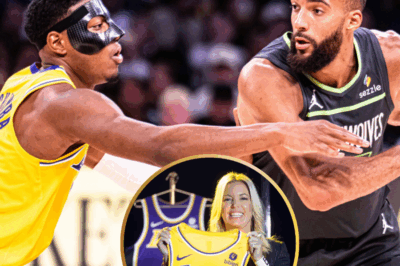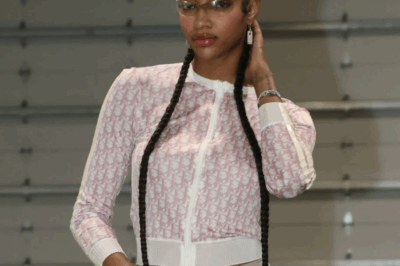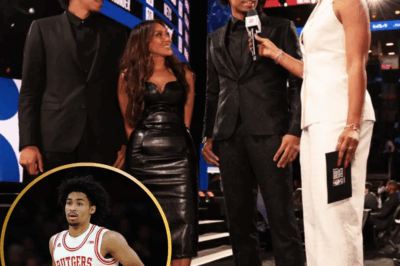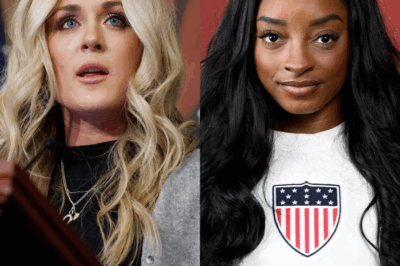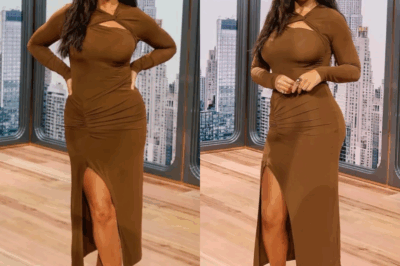Social Media Outrage Erupts Over CBS’s Inappropriate Crowd Shots During NCAA Tournament Broadcast
CBS Sports, a long-time broadcaster of the NCAA Tournament, is facing mounting criticism after social media users accused the network of repeatedly airing inappropriate crowd shots during recent March Madness coverage.
The backlash erupted during one of the most highly anticipated games of the tournament and has since spiraled into a larger debate about media ethics, consent, and broadcast standards in sports.
As the NCAA Tournament garners millions of viewers and intensifies in competitiveness, CBS’s broadcast practices are being scrutinized more than ever.
This year, eagle-eyed fans and online users noticed a pattern in how CBS’s cameras focused on certain crowd members—particularly young female spectators—in ways that many viewers deemed objectifying and unnecessary.
The Game That Sparked the Firestorm
The criticism began during a high-profile Sweet 16 matchup aired during primetime on CBS. As the game unfolded on the court, the network intermittently cut to crowd shots.
While crowd reactions are standard fare during sports broadcasts, several of CBS’s chosen angles drew immediate attention.
Fans on X (formerly Twitter), TikTok, and Reddit began documenting and sharing clips that showed prolonged focus on young women in the stands, some of whom appeared visibly uncomfortable.
The offending clips quickly went viral, accompanied by hashtags like #MarchMadness and #CBSDoBetter.
The tone of the comments ranged from frustration and concern to outright disgust.
One user posted, “I’m trying to enjoy college basketball, not watch CBS pan to another girl in the stands every five minutes.
This is gross and outdated.” Another commented, “Why are we still doing this in 2025? CBS, read the room.”
What Viewers Are Saying: A Social Media Storm
The online reaction to CBS’s coverage has been swift and unrelenting. Many users accused the network of exploiting its camera access to objectify women, particularly college-aged women, in the name of entertainment.
Others questioned the editorial decision-making behind the scenes, asking why producers thought such footage added value to the game broadcast.
“We’re here for basketball, not for CBS’s weird obsession with crowd shots of women,” wrote one Reddit user in a viral thread. “This is a sports event, not a modeling agency.”
Popular sports commentator Jemele Hill weighed in on X, stating, “I’ve worked in sports for over two decades, and this kind of camera work was problematic then, and it’s still problematic now. Networks need to be more mindful.”
The controversy also sparked several TikTok video compilations pointing out the pattern across multiple CBS broadcasts during the tournament, suggesting the issue wasn’t isolated to one game.
CBS Responds: Silence or Strategy?
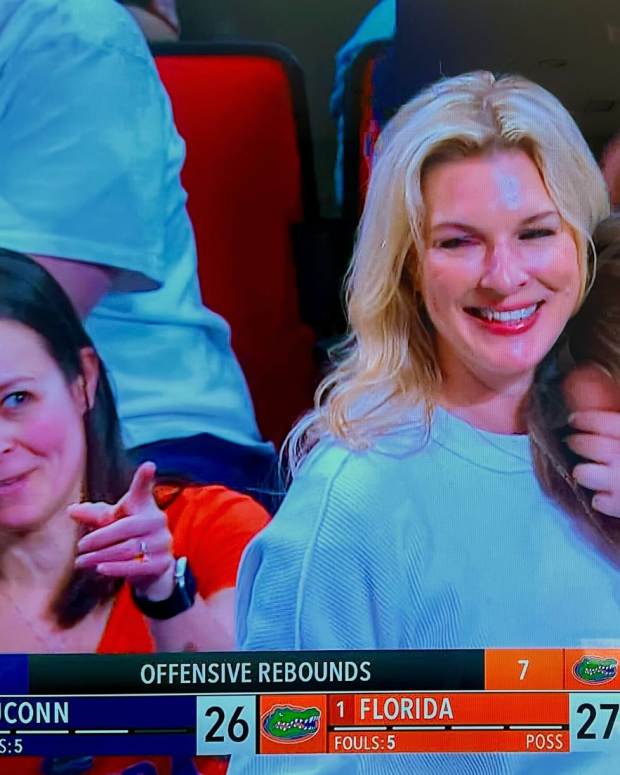
As of this writing, CBS has not issued an official statement in response to the growing backlash.
The network’s silence has only fueled more anger online, with users accusing CBS of attempting to quietly let the controversy die down rather than taking accountability.
Media watchdog groups, including the Media Ethics Alliance and Women in Sports Media, have called on CBS to address the situation publicly and take steps to ensure more respectful and appropriate coverage moving forward.
“CBS has a responsibility to its viewers, especially during an event as widely viewed and culturally significant as March Madness,” said Dana Thompson, a spokesperson for the Media Ethics Alliance. “Failing to acknowledge and correct this behavior only deepens the breach of trust.”
The Broader Conversation: Consent, Ethics, and Responsibility in Sports Broadcasting
This isn’t the first time a major sports broadcaster has been accused of airing inappropriate crowd shots.
However, in the age of social media and increasing public awareness around issues of consent and objectification, the standards for acceptable broadcast behavior have evolved.
Experts say that sports media companies must adapt to these new expectations or risk alienating their audience.
“When you focus on a person in the crowd, especially in a way that could be perceived as sexualized or intrusive, you’re entering a gray area of consent,” said Dr. Eliza Reynolds, a media studies professor at Northwestern University.
“Just because someone attends a public event doesn’t mean they consent to being the focus of a national broadcast.”
This sentiment was echoed by fans and commentators who believe sports broadcasts should prioritize the game and athletes over crowd spectacle.
Industry Standards and Past Controversies
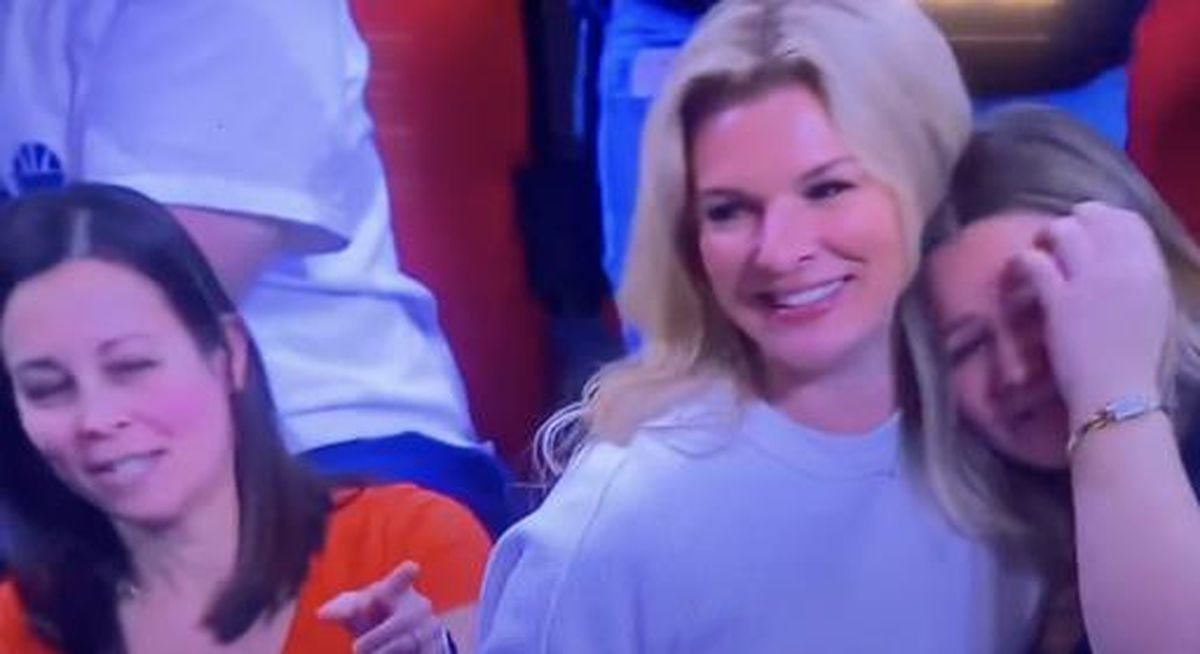
Other networks, such as ESPN and FOX Sports, have also faced criticism over the years for similar practices.
In 2021, ESPN faced backlash for repeatedly zooming in on celebrity attendees and women in the crowd during the College Football Playoff.
In response, some networks have since implemented internal guidelines limiting the types of crowd shots used during live broadcasts.
CBS’s current practices are now under review by advocacy groups who want to see similar changes instituted universally.
“If CBS wants to maintain its reputation as a leader in sports broadcasting, it needs to evolve with the times,” said Karen Liu, a television critic with MediaMatters.
“That means respecting personal boundaries and shifting the focus back to the sport itself.”
The NCAA’s Role: A Silent Partner?
While CBS has taken most of the heat for the inappropriate crowd shots, some critics have also turned their attention to the NCAA.
As the governing body responsible for the tournament, the NCAA partners with CBS for media rights and thus has influence over broadcast content.
“The NCAA needs to step up and make sure their athletes, fans, and student populations are being represented respectfully,” said Leslie Campbell, director of Women in Collegiate Sports.
“They should be holding broadcasters accountable when they cross the line.”
The NCAA has not commented publicly on the issue, but sources indicate that discussions are ongoing internally regarding potential oversight of future broadcasts.
Athlete Reactions: Standing Up for the Fans
Several NCAA athletes have taken to social media to defend the fans and call out the broadcast decisions.
“These are our classmates, our friends, our family members in the crowd,” wrote one college basketball player on Instagram.
“They deserve to watch us play without being made uncomfortable or objectified.”
Other athletes echoed similar sentiments, with many suggesting that CBS’s actions distract from the incredible talent and hard work on the court.
Calls for Reform: What Viewers Want to See Next
The outcry has led to calls for reform from viewers, advocates, and media analysts alike. Suggestions include:
- Implementing broadcast guidelines that limit the duration and type of crowd shots used.
- Establishing protocols requiring consent when zooming in on individual spectators.
- Increasing diversity among production teams to ensure more thoughtful decision-making.
- Issuing public apologies when coverage crosses ethical boundaries.
A Change.org petition titled “Stop Inappropriate Crowd Shots During NCAA Games” has already amassed over 75,000 signatures as of Monday morning.
The petition calls on CBS, the NCAA, and other major networks to rethink how they incorporate crowd imagery into sports coverage.
Media Experts Weigh In
Experts in broadcast journalism and ethics are weighing in on the larger implications of this controversy.
Many see it as a watershed moment that could change how live sports events are presented in the future.
“It’s no longer enough to claim these shots are part of the ‘entertainment factor,’” said Dr. Marcus Langford, a professor of sports journalism at Syracuse University.
“We have a responsibility to reflect the values of our audience, and that includes respecting people’s dignity.”
Langford pointed to the growing pressure on broadcasters to reflect cultural progress and heightened sensitivity around issues of consent and gender equality.
Looking Ahead: Will CBS Adapt?
All eyes are now on CBS as the NCAA Tournament continues into the Elite Eight and Final Four rounds. With the backlash still trending on social media and coverage from major outlets increasing, it’s unlikely that the controversy will go away quietly.
Viewers and advocacy groups are watching closely to see if the network changes its broadcast approach or issues an official response.
Should CBS fail to respond or adapt, the reputational cost could be steep—particularly with a younger, more socially conscious audience tuning in.
A Pivotal Moment for Sports Media Ethics
The uproar over CBS’s NCAA Tournament coverage is more than just a fleeting controversy.
It represents a broader cultural reckoning about how media companies handle consent, representation, and ethics in sports broadcasting.
As the NCAA Tournament continues, and the spotlight remains on CBS, the decisions made in the coming weeks could shape the future of live sports coverage for years to come.
For now, the message from viewers is clear: focus on the game, not the gaze.
News
NBA Draft Pick’s Secret Weapon? Cover Girl Model GF & Her ARMY of Fans Are Taking Over the League!
NBA Draft Pick’s Secret Weapon? Cover Girl Model GF & Her ARMY of Fans Are Taking Over the League! In…
ANOTHER NBA TEAM SOLD FOR $1.5 BILLION! Lakers’ $10B Mega-Deal Sparks Wild Franchise Frenzy—Who’s NEXT?
ANOTHER NBA TEAM SOLD FOR $1.5 BILLION! Lakers’ $10B Mega-Deal Sparks Wild Franchise Frenzy—Who’s NEXT? In a stunning development that…
Angel Reese Drops BOMBSHELL Hint About Her Personal Life—Fans Are STUNNED!
Angel Reese Drops BOMBSHELL Hint About Her Personal Life—Fans Are STUNNED! In the world of professional sports, athletes often find…
NBA Draft Steal Dylan Harper Overshadowed by His Gorgeous Mom—Fans Can’t Believe Their Eyes!
NBA Draft Steal Dylan Harper Overshadowed by His Gorgeous Mom—Fans Can’t Believe Their Eyes! In the high-stakes world of the…
Simone Biles Drops BOMBSHELL 10-Word Message After Social Media Wipeout—Riley Gaines Feud Takes SHOCKING Turn
Simone Biles Drops BOMBSHELL 10-Word Message After Social Media Wipeout—Riley Gaines Feud Takes SHOCKING Turn In a surprising turn of…
Molly Qerim SHUTS DOWN First Take in Jaw-Dropping Outfit—Fans Crown Her ‘Queen Boss’! Is ESPN’s Hottest Host Redefining Sports TV
Molly Qerim SHUTS DOWN First Take in Jaw-Dropping Outfit—Fans Crown Her ‘Queen Boss’! Is ESPN’s Hottest Host Redefining Sports TV…
End of content
No more pages to load




